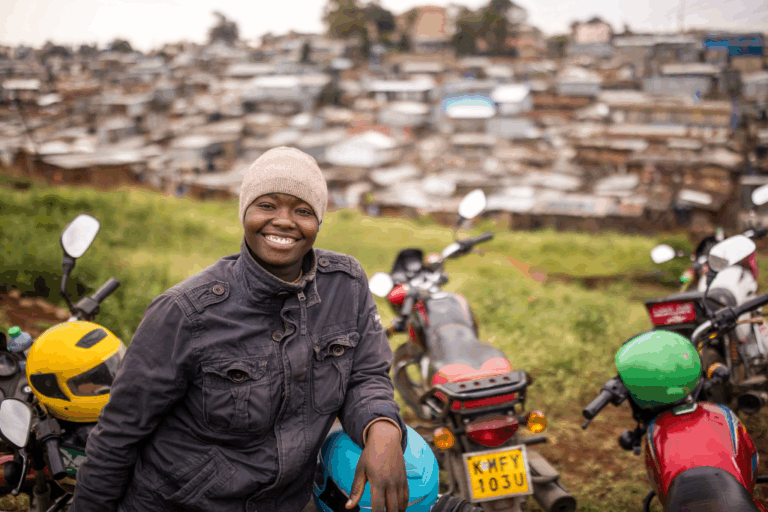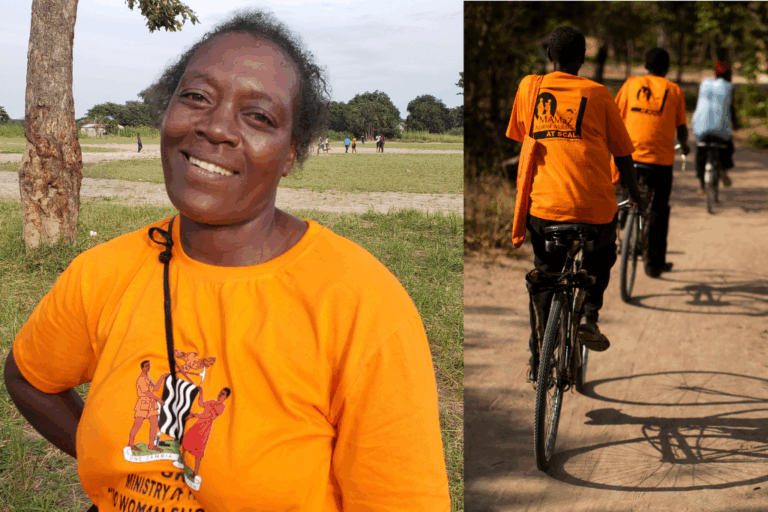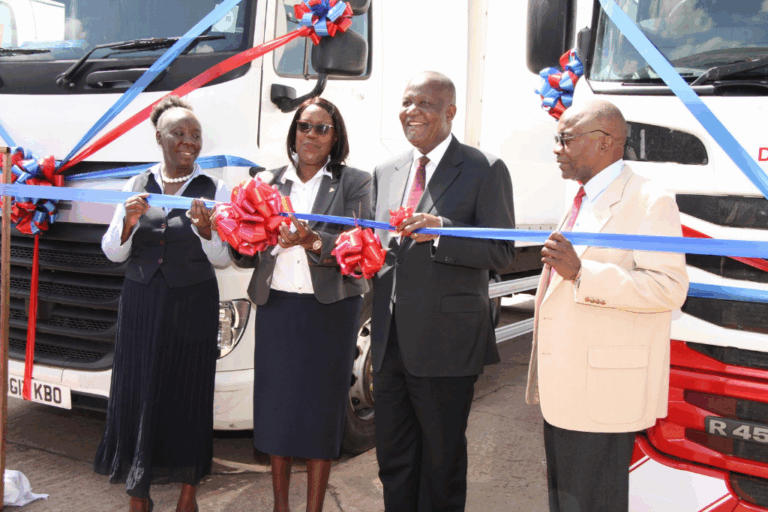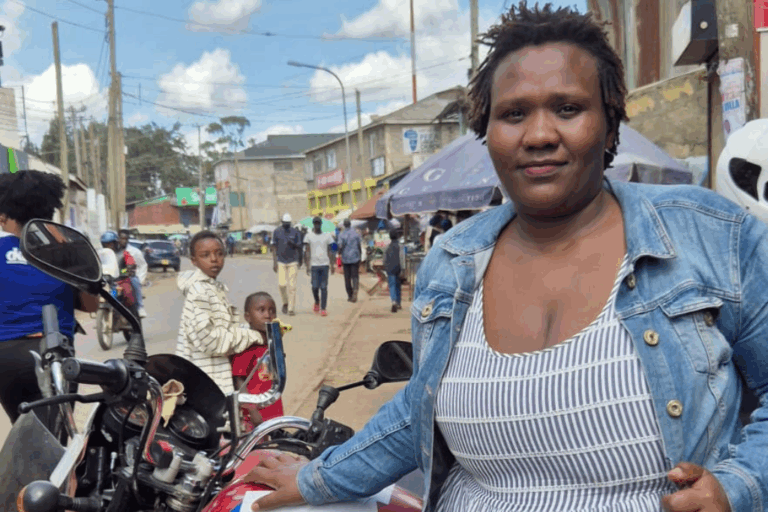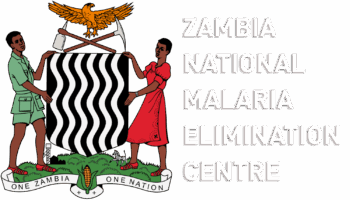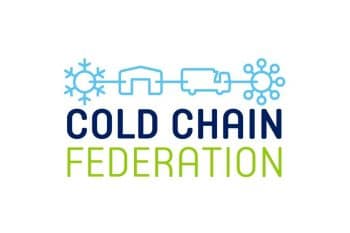
News

Helmets testing and awareness needed to curb Kenyan motorcycle deaths, says report from Kenyan National Helmet Wearing Coalition
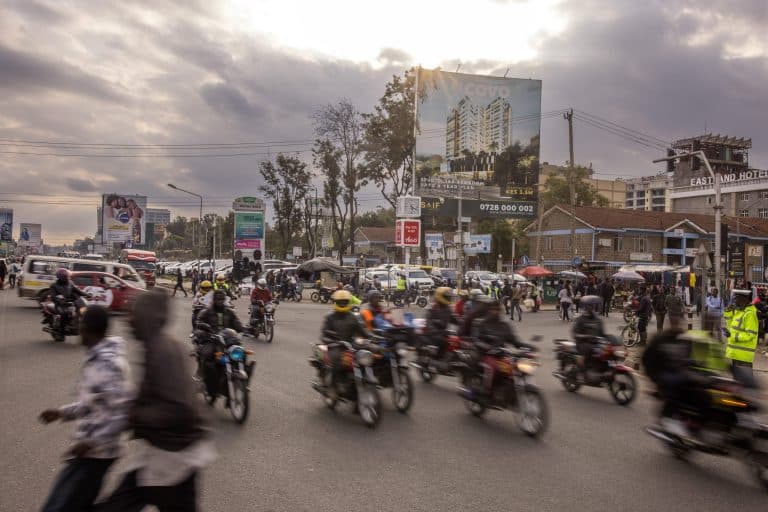
The rising role of motorcycles in Kenya’s economy is coming at too high a cost, according to a new report by the Kenyan National Helmet Wearing Coalition, which highlights the urgent need for helmet testing and awareness in order to combat the number of motorcycle-related fatalities and injuries in the country.
Key findings from the report:
- There is a need for a helmet testing facility to strengthen enforcement of the Kenyan helmet standard;
- Just 15 percent of pillion passengers and 63 percent of riders in Nairobi wear helmets;
- Head injuries make up over a third of treated motorcycle injuries;
- The mean hospital stay for a motorcycle crash victim is 18 days, and 28 percent spend more than three weeks in hospital;
- Hospital treatment for motorcycle taxi crashes can cost up to 4.5 times the annual salary of the rider.
In Kenya, registered motorcycles have risen to 2.2 million: 22 million journeys, with fares totalling US$100 million, being made daily. The personal and economic cost, however, is high, and motorcycle users made up 35 percent of all Kenyan road deaths in 2023 (NPS, 2024), with low helmet prevalence and quality being a major issue.
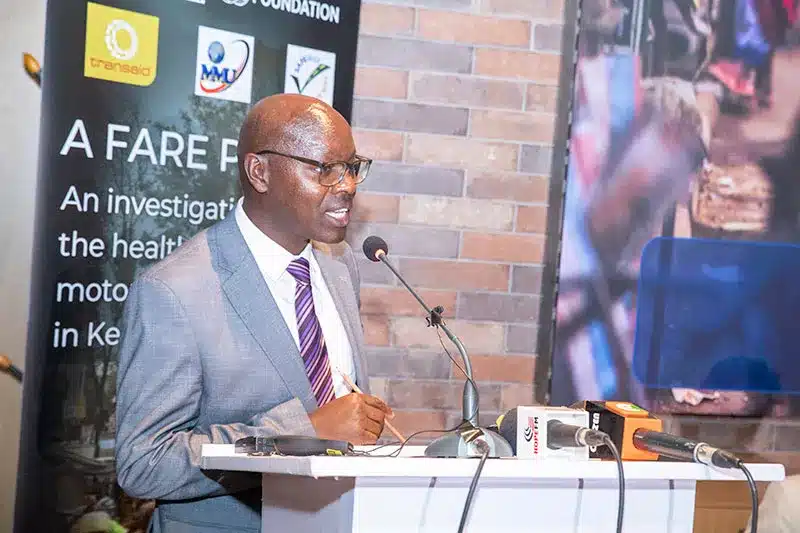
The Coalition report ‘A Fare Price: An Investigation into the Health Costs of Motorcycle Taxi Crashes in Kenya’ studied boda boda helmet usage through hospital data, observational studies, in-depth interviews and national data analysis.
To compile this report, Transaid worked in partnership with Multimedia University of Kenya, Safe Way Right Way Kenya, and Margie Peden, with support from the FIA Foundation.
The report emphasises the importance of establishing a helmet testing facility to ensure compliance with safety standards and reduce substandard helmet usage. Additionally, it calls for greater public awareness, political commitment, and financial investment to prioritise helmet compliance.
George Njao, Director General NTSA, said: “In Kenya trauma in the form of musculoskeletal and head injuries are the most common injuries because of motorcycle related crashes. Motorcyclists are particularly vulnerable because they have limited protective equipment that could prevent major traumas in the event of a crash. Despite the burden of the problem, the vice has not received adequate attention due to unavailability of local reliable data. Based on the report being released today it is evident that riders face significant risks due to the absence of appropriate helmets. We require helmets that meet international standards, and we will work together with all relevant stakeholders to ensure the safety of our motorcyclists. We welcome these findings, and it will go a long way in supporting the Government in coming up with evidence-based interventions including the establishment of helmet testing centers.”
Dr Gladys Nyachieo, report principal investigator, said: “Medical costs from motorcycle crash injuries have adverse effects on the lives of those affected and the community at large in the short- and the long-term. There is a need for more enforcement of existing legislation and helmet standards for safety for pillion and operators. Let all stakeholders commit to creating safer roads and safer helmets for all users. This report is clear on the suffering and disruptions that occur due to the effects of motorcycle crashes.”
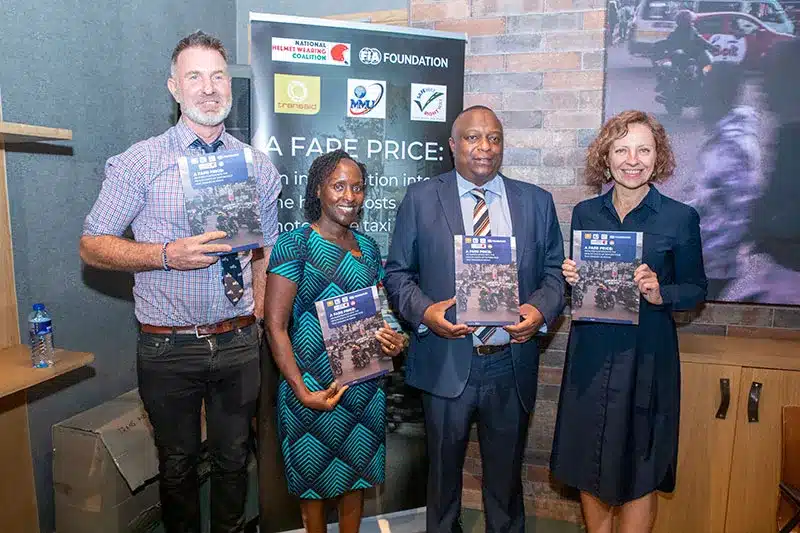
Aggie Krasnolucka, Programmes Director of the FIA Foundation, said: “Building safer journeys starts with understanding the importance of high-quality helmets. It is clear from this new report that Kenya needs better data and awareness of helmet wearing, and most importantly means to testify their quality. The FIA Foundation is pleased to support the Kenyan National Helmet Coalition that aims to achieve just that.”
Sam Clark, Transaid Head of Programmes, said: “Transaid is proud to be one part of this research. It has highlighted the need for strong data related to the health outcomes of motorcycle crashes to ensure that more in-depth research is done on the project.”
Read ‘A Fare Price’ here.
Recent Posts




